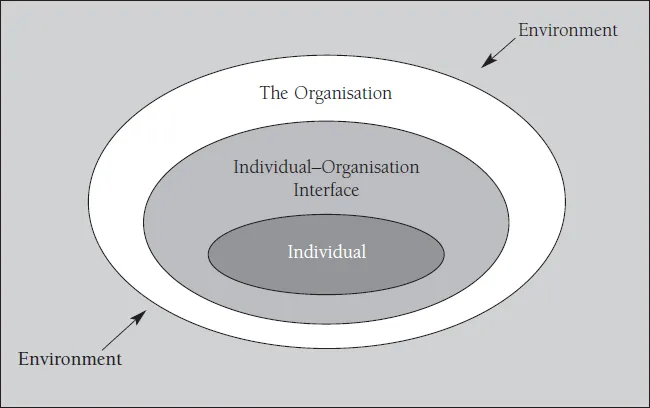
Make That Grade Organisational Behaviour
Michele Kehoe
- 187 pages
- English
- ePUB (mobile friendly)
- Available on iOS & Android
Make That Grade Organisational Behaviour
Michele Kehoe
About This Book
New edition of this concise overview of organisational behaviour for quick reference or fast and effective exam revision.
Focussing on key themes and developments, this enhanced edition applies theoretical concepts to real-life situations, highlights definitions and key concepts, and provides chapter summaries and short revision questions for each topic.
Includes chapters on person perception, attitudes in the workplace, learning, personality, stress management, leadership, group dynamics, organisational conflict and organisational communication.
Suitable for anyone who needs an overview of organisational behaviour for work or study. Particularly relevant to students taking exams for Organisational Behavioural modules at college and university level, and those taking short courses in Organisational Behaviour, Front Line Management, People Management and Human Resource Management.
Frequently asked questions
Information
INTRODUCTION TO ORGANISATIONAL BEHAVIOUR
- Describe the nature of organisational behaviour.
- Understand the goals of organisational behaviour.
- Appreciate the benefits of understanding the behaviour of people in the workplace.

- Individual processes in organisations – The focus of this aspect of OB is on the individual employee and their personal characteristics, experiences and background. Areas under investigation include perception, attitudes, learning, personality, motivation and stress. An insight into these individual processes provides an understanding of the reasons why people behave the way they do in the workplace. The importance of understanding why people behave the way they do is fundamental to the study of OB. As stated by Buchanan and Huczynski (2010), ‘organizations do not “behave”. Only people can be said to behave.’
- Interpersonal processes in organisations – This area of OB examines the impact that the individual has on the organisation and that the organisation has on the individual. At this level, the focus of the study of organisational behaviour is on the dynamics of interaction between managers and co-workers and on formal policies and procedures. Aspects of study include group dynamics and teamwork, leadership, conflict and communication.
- Organisational processes – Organisations exist before and after individuals join and leave them and groups are formed and disband. At this level of analysis, the structure and functioning of the organisation is examined. Areas for consideration include organisational design, organisational change and development and organisational culture.
- To explain the factors that influence the behaviour of people in the workplace.
- To make predictions about the consequences of particular types of behaviour.
- To control the behaviour of employees to improve organisational effectiveness.
- Setting performance standards, such as attendance rates, the quality and quantity of production, customer service levels.
- Measuring actual performance by monitoring the behaviour of employees.
- Comparing standard performance with actual performance.
- Taking corrective action, if necessary, such as providing additional staff training and development programmes, revising pay rates, redesigning jobs, implementing new policies and procedures.
- Psychology – The focus of psychology is on understanding the behaviour of individuals in a variety of environments. Research in this area has made a significant contribution to our understanding of areas such as learning, personality and stress.
- Sociology – This involves the study of society and human social interaction and has provided an insight into patterns of social relationships, social action and culture.
- Political science – Through the study of the political arena, an understanding of power and organisational politics is gained.
- Management – The aim of management is to make the most efficient use of human and material resources. Research in this area has led to an understanding of the different approaches to management that have been adopted and the value and contributions that these approaches have made to modern organisations.
- What causes employees to behave the way they do?
- What motivates employees?
- Why do some people perform better than others?
- How does stress affect people in the workplace?
- Can conflict benefit an organisation?
- What is the most effective style of leadership?